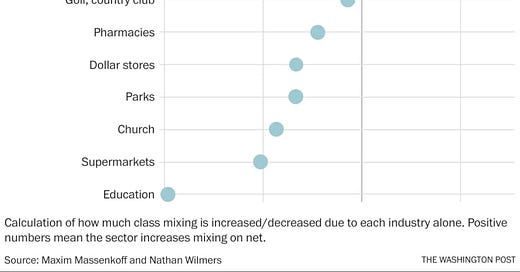
Discover more from Lutheran Confessions
The church in its social-historical aspect is always already functioning as an important political actor. This means that it exists and acts politically, before it explicitly takes up any particular political position, and before any questions are raised about the criteria for its current political stance. The usual presumption of an a priori ‘neutrality’ and ‘political innocence’ is either uncritical, or or deliberately veils existing political alliances. It is essential to develop a critical-political hermeneutics of the church in order to keep the church from identifying itself uncritically and without any checks with particular political ideologies.1
Let’s accept Metz’s assertion as a profound truth. The church is always already functioning as an important political actor. This will come as a shock to many ears, because many if not most contemporary American Christians rather uncritically assume that the so-called doctrine of separation of church and state means that the church can exist in a kind of neutral religious space, “politically innocent” as it were.
Before the church takes up any particular political position, it is already functioning as a political actor. Perhaps this can help shed some light on the experience we are having in a supposedly more polarized political context, inasmuch as the political polarization as it impacts church life is exposing/unveiling the church as political actor.
Of course, this may be because many churches or even the church in general has uncritically identified with particular political ideologies. But it’s important for us to make this distinction: it’s not that the church shouldn’t be political—it always already is—but rather the work of the church is to be political in the right way, with an awareness of that it is in fact a priori political.
On this Labor Day weekend then, at the end of the hottest summer on record, we might ask ourselves what it has meant for climate change and labor that the church has, especially in the. U.S. context, presumed itself neutral and politically innocent.
To what extent has the church seen itself in solidarity with the working class?
To what extent has the church aided and abetted climate change?
Do we have a sufficiently robust critical-political hermeneutics of the church to speak and act at the intersection of faith, climate change, and labor?
I’m going to assume, based on fifty years of experience, that in fact for the most part the church has presumed itself largely politically innocent in relationship to both labor and climate change.
Although there have been remarkable exceptions, like MLK Jr.’s solidarity with sanitation workers in Memphis, for the most part local congregations have not seen themselves as allies in solidarity with unions or the working class. Although some effective organizers have long been aware that when faith and labor are unified, they are a force, this is not an area the church has invested time, energy, or money.
Painting with broad strokes, I think I’d argue that the church, inasmuch as it uncritically identifies with the political ideology of the right or the left, tends either from a perspective of the right to actually favor the interests of the rich in the hopes that favoring the rich might trickle-down with benefits to everyone and inspire those not yet rich to avail themselves of becoming rich, while those on the left, though they gesture at working class solidarity, have nevertheless for the most part simply prioritized the financial interests of the middle class over those of the working poor.2
Personally, I’ve seen how effective faith and labor organizing can be working in tandem. When workers and clergy show up at the table and directly challenge the executive class and corporations, they often accomplish a lot. Admittedly, they accomplish a lot through onerous levels of organizing just to get simple wins. But nevertheless, I’ve observed labor and faith working together in highly effective ways.
But in the same period that church organizing has been waning, so too has worker organizing, and whether it’s simple lack of interest or just exhaustion, the church as a whole lacks a robust commitment to labor. Given the size and potential of the church, that the church has now shown up for workers has a lot to do with how corporations have been able to seize power and wrest the opportunity for effective organizing away from workers.
Meanwhile, the church presumes itself politically innocent of the many problems of class division in our society. The church sits silently on the side of the current class war and mostly just blesses the rich as they pillage the poor, while also contributing to a lack of socio-economic diversity. .
Much the same can be said of climate change. As a moral voice the church has been very late to the game in the climate crisis. Much if not most of impactful climate activism has arisen out of patently secular spaces. Although some resources have emerged in the last decade (like the New Creation Liturgies3 resource we’ll be using starting this Sunday in worship) centering creation care from a Christian perspective, for the most part those who have been our prophets for climate change have understood the church to be complicit in climate change rather than a vital partner in solidarity with climate activism.
Here the complicity is patently theological. The church has for the most part read Scripture with an anthropological lens, concerned primarily with the salvation of humans and much less with our relationship with the creation as a whole. In spite of a rather deep leitmotif in Scripture of God’s abiding relationship with all of creation and humans as woven into it, the church has prioritized a gospel focused on saving human souls for a future or separate heaven.
All kinds of brutal systems have arisen from this theological error. Creation has been understood, in the worst cases, as a disposable vessel, as something humans can lord themselves over, or in the most common cases, simply as not a significant part of whatever it is that Christian faith is to be concerning itself with.
Christian theology in many quarters has for the most part simply been silent in relationship to creation, and just so inadequately prepared to address the climate crisis.
How might we think these all together on this Labor Day weekend? What can we say as we begin this four week Season of Creation?
In all instances, I believe the first move is the hardest to wrap our heads around but also the most essential. We truly must disabuse ourselves of the false notion that the church is apolitical. We must overcome the concept, so commonly taught among us, that we might somehow, in separating church from an influence over the state or the state having influence to keep us from being church in certain ways, arrive at some spiritual state of political innocence in which spiritually or religious life is not political.
In other words, we must realize that church properly understood is an alternative politics.
Once we wake up and remove the veil, then we can begin to understand everything in Scripture and Christian tradition that sees church as an “outpost of the kingdom of God” in the way it should be seen, as itself a kind of politics. As a kind of politics, it has something (quite a lot in fact) to say about our relationship to our industrial and economic practices that are contributing to climate change and that sacrifice workers at the altar of a neoliberal economy.
Having woken up, we can begin to consider how we might move in solidarity as a church at the intersection of labor and climate change. What is our responsibility toward workers who will, across the globe, have to work in hotter and hotter conditions if they lack access to A/C? What decisions will we make about work and labor and the ways we necessitate it for production if in fact that continues to exacerbate the climate crisis? Can we imagine living together in ways that lessen carbon emissions AND treat workers better (and overall stop feeding into a system that understands work as a kind of salvation?)
Can we read the gospels as a document recording a movement that primarily took place in and among the working poor? Can we rediscover in Scripture the way it speaks not just (or even primarily) to/about humans, but about creation as a whole?
Can we discover theological resources to wrest power away from the rich and restore access to all of God’s gifts to all of God’s creation in a manner of mutual aid and shared love?
(Faith In History and Society: Toward a Practical Fundamental Theology, Johann Baptist Metz, 88)
And to a certain degree distracted themselves with the important matter of identity politics while side-stepping the issue of class.
“From September 1 to October 4, Christians around the world mark the Season of Creation, a relatively recent development in the liturgical calendar.
The practice began in 1989 when Ecumenical Patriarch Dimitrios I proclaimed September 1 a day of prayer for the environment. In 2000, a Lutheran congregation in Australia developed a four-week celebration of creation — and the idea spread throughout that nation and beyond. Eventually, the Vatican picked up the practice and the World Council of Churches promoted the new liturgical season.” (via Diana Butler Bass)
Subscribe to Lutheran Confessions
Reflections from a progressive Lutheran pastor in the South.




When I was in college, I had a political science major tell me that any time two people interacted, that was politics. What I derive from this is that it is impossible to remove a political dimension from living. As the church offers a guide for living, it is therefore a necessary action for the church to be involved in politics. Historically there was a strain the the church writ large and Lutheran Pietism in particular to remove oneself from political life. This is also seen in groups like the Amish for example.
Certainly, close collaboration, such as in those countries who have declared a national religion, is fraught with distortion of the religious message and actions of churches. In 20th century German history, this was seen in the Nazi manipulation of the strains between Catholics and Lutherans, to the detriment of both congregations.
Therefore, it is necessary for the church to engage with political entities, but in a critical fashion, and to guide Christians as they interact with the political currents which sweep through our lives.